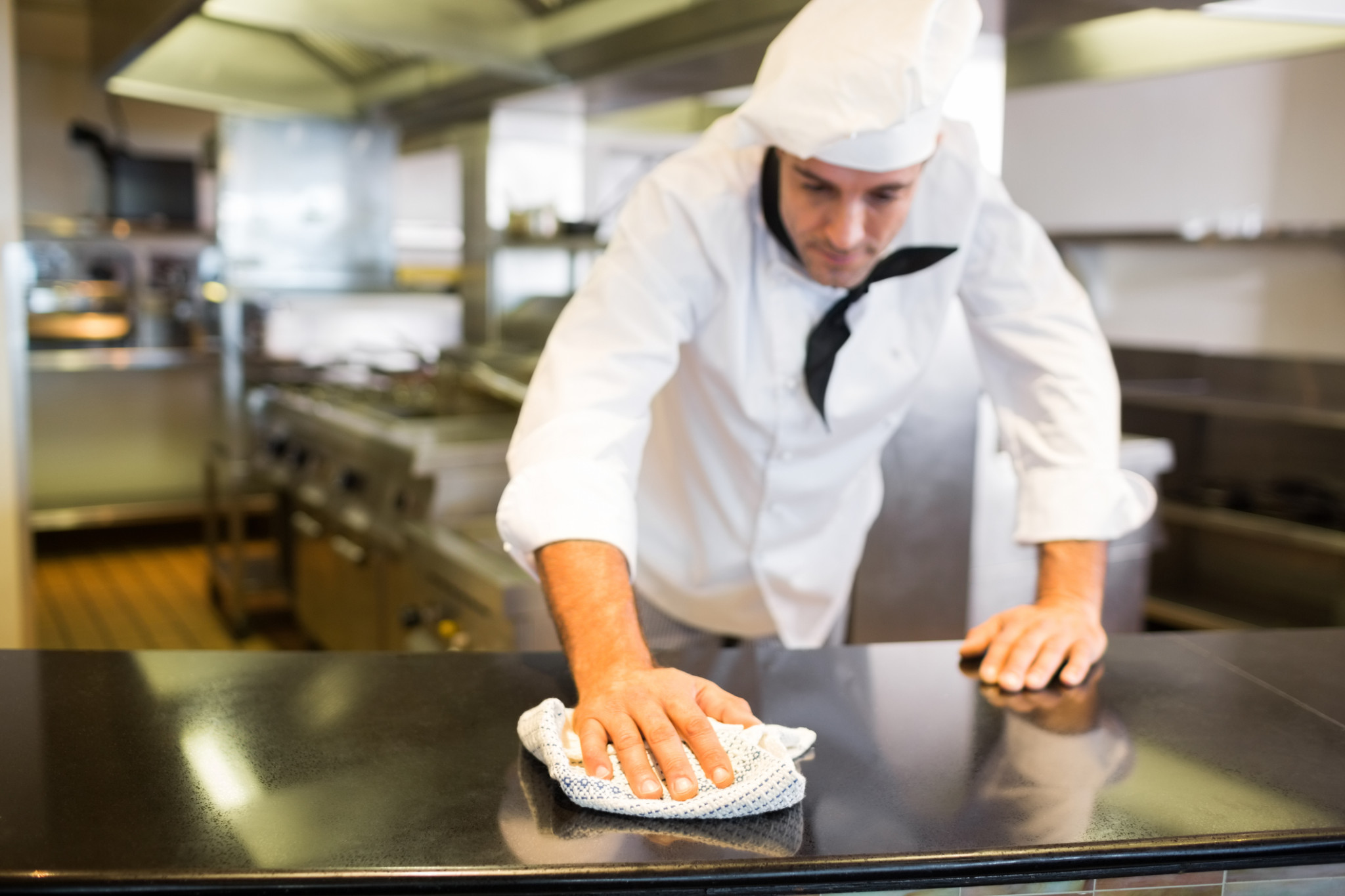
5 Ways to Prevent Foodborne Illness at Your Restaurant
Having an outbreak of foodborne illness on your premises is every restaurateur’s biggest nightmare. Sick patrons can spell disaster. Loss of reputation, loss of business, and potential bankruptcy due to a liability lawsuit.
The best way to protect yourself and others from this risk is by ensuring you install rigid safety and handling procedures in your establishment. By doing this, you can significantly lower the risk of a patron getting sick and protect your business at the same time.
Here are the five best ways to prevent foodborne illness at your restaurant.
1. Prevent Cross-Contamination
Germs and pathogens can easily be spread from one area to another. Unwashed hands, equipment, and utensils can mean other items and areas can quickly become contaminated. Illness can spread fast. Fortunately, there are several effective measures that you can take to prevent this from happening:
- Handwashing is Essential: Dirty hands are among the quickest and most effective ways to spread pathogens. Therefore, it’s essential that all staff wash their hands when finishing one task and before moving on to the next. Soap must be used when washing and a single-use paper towel or napkin used to dry hands.
- Use Separate Equipment: Each type of food needs to have its own set of equipment. Raw meat, poultry, fish, and fresh produce each needs its own cutting boards, utensils, and storage containers.
- Keep Work Surfaces Spotless: All food prep areas and work surfaces must be cleaned and sanitized on a regular basis. Using water and a cloth isn’t sufficient. Make sure you use an appropriate cleaning agent that will get rid of pathogens.
- Personal Hygiene Matters: All staff must practice excellent personal hygiene. Hair must be kept tied back, uniforms must be clean, and any wounds must be covered properly. If staff is ill, they must not come into contact with any food or related prep equipment.
2. Provide Warnings for Customers When Appropriate
Preventing foodborne illness at your restaurant can be achieved by making customers aware of the risks of eating contaminated food. Many people enjoy eating raw or undercooked meat and fish, but not many are aware of the risk they present.
All types of meat contain bacteria. Whether it’s a rare cooked steak or a plate of sushi, the bacteria present can occasionally cause a person to be sick. Heat at the proper temperatures is what kills bacteria and since these types of meals don’t require the meat to be heated, the bacteria could still be present when the meal is consumed.
The US Food and Drug Administration’s 2009 Food Code allows undercooked or raw food to be served. However, the person consuming it must be warned and informed of the risks. This warning may be a sign on the wall of a fast food joint or a written statement on a menu card. Having this notice makes the customer aware that they are willingly taking on the risk when they eat these foods. In such cases, should the customer happen to fall ill, the restaurant cannot be held liable.
3. Properly Train Staff
Nothing is effective to avoid foodborne illness than properly trained staff. Even the most prestigious restaurants can fall victim to an outbreak of food poisoning if their staff is improperly trained.
Your team should be your biggest asset, not your biggest liability. If a customer does get sick at the hands of one of your employees, then it will be your establishment that’s held liable. Therefore, ensure you adopt and install a sufficient training program to get them up to a high standard of correct food prep and handling.
- Give all staff online food and safety training. Each staff member has to successfully complete the program before they can be allowed to handle any kind of food or prep work.
- Have sufficient clear signage to remind staff of the correct procedures such as handwashing and equipment cleaning. This is required by law, so it’s a vital aspect of restaurant safety requirements.
- Hold weekly training sessions where you focus on one specific topic of food safety and hygiene.
- Assign an experienced member of staff to watch over and assist new staff members. Their job is to guide the new staff member into adopting and maintaining proper safety and hygiene procedures.
4. Sanitize Frequently
Water alone will not clean your surfaces and equipment sufficiently. Water will get rid of grease and grime, but it doesn’t kill bacteria or pathogens. If all you’re using is water, then you’re going to get in trouble sooner or later.
- Using specialized chemical cleaners will ensure that bacteria are successfully dealt with. You should use one specifically for all work surfaces and areas where objects and food are placed. Another should be used for all floors. And you should have a specific cleaning agent for sinks, basins, and restrooms.
- When applying the cleaning agents, don’t immediately wipe them off. Leave them for a minute or two. Then clean with a clean cloth or sponge and water. This allows time for the agent to work more effectively.
- For a deeper clean and full disinfection of the surface, you can leave the cleaning agent on for a longer time. Typically, this is most convenient to do at the end of the day before closing. If possible, apply the cleaning agent and leave it overnight. Surfaces can be wiped down the next day using water and a clean cloth or sponge.
5. Encourage Frequent Handwashing
We already mentioned this, but it deserves its own heading because it is your very best defense in preventing foodborne illness at your restaurant. Handwashing is so vital it must be performed at regular intervals. It should take place after carrying out a specific activity and before moving on to the next task.
For successful handwashing ensure:
- Soap and water are used to wash hands. Sanitizer is okay, but it’s not sufficient to clean hands. Soap and water is the best combination.
- Single-use hand towels are provided to dry hands. Teach staff never to dry hands on their clothing.
- If possible, have a separate sink used exclusively for handwashing.
- Have sufficient signage reminding staff of handwashing procedures.
Handwashing must be carried out after:
- Drinking
- Eating
- Coughing or sneezing
- Preparing raw fish and meat
- Handling cleaning products
- Handling dirty equipment
- Touching the face, body, or hair
- Using the bathroom
Disposable gloves can be used during food handling but remember that this is not a substitute for handwashing and must be put on and removed properly. Gloves can get even dirtier than hands and must be changed frequently if used. As a general rule, it is better not to use gloves, but they are essential if the staff member has an open wound or a skin condition.
Protect Your Liability
Preventing foodborne illness at your restaurant is the best way to minimize your risk, but it won’t eliminate it. If you’re found liable for foodborne illness, you could face a costly lawsuit as a result. Protect yourself and your business with liability coverage from XINSURANCE.
With customized restaurant liability insurance, XINSURANCE can give you the peace of mind to concentrate on successfully running your business. To find out more about XINSURANCE and our all-in-one coverage get in touch today:
- Phone: 877-585-2853
- Email: info@xinsurance.com
- Website
Practicing good hygiene and safety standards is good for your reputation, your business, and your bottom line. For anything else that happens, XINSURANCE has you covered. Serve with confidence by investing in superior restaurant liability insurance with XINSURANCE today.

Rick J. Lindsey hails from Salt Lake City, Utah. He began working in the mailroom of his father’s Salt Lake City insurance firm, getting his introduction to the business that became his lifelong career. Rick J. Lindsey quickly rose through the ranks while working in nearly every imaginable insurance industry job. As an entrepreneur, specialty lines underwriter, claims specialist, risk manager, and a licensed surplus lines broker, Rick J. Lindsey is highly skilled in all levels of leadership and execution. As he progressed on his career path, Rick J. Lindsey discovered an urgent need for insurers willing to write policies for high-risk individuals and businesses. He was frequently frustrated that he could not provide the liability protection these entities desperately needed to safeguard their assets. He also formed the belief that insurance companies acted too quickly to settle frivolous claims. Rick J. Lindsey decided to try a different approach. He started an insurance company and became the newly formed entity’s CEO. This opportunity has enabled Rick J. Lindsey to fill a void in the market and provide a valuable service to businesses, individuals, and insurance agents who write high-risk business. XINSURANCE also specializes in helping individuals and businesses who live a lifestyle or participate in activities that make them difficult for traditional carriers to insure. If you’ve been denied, non-renewed, or canceled coverage, don’t give up quite yet. Chances are XINSURANCE can help.

